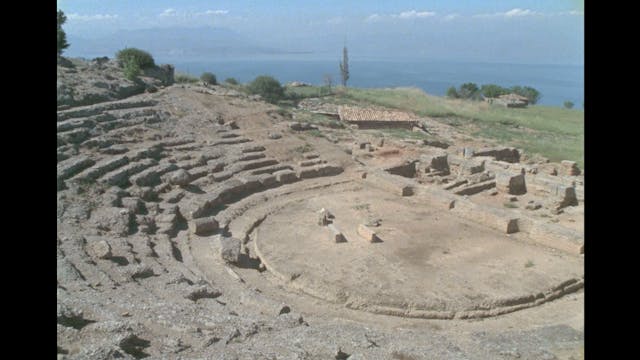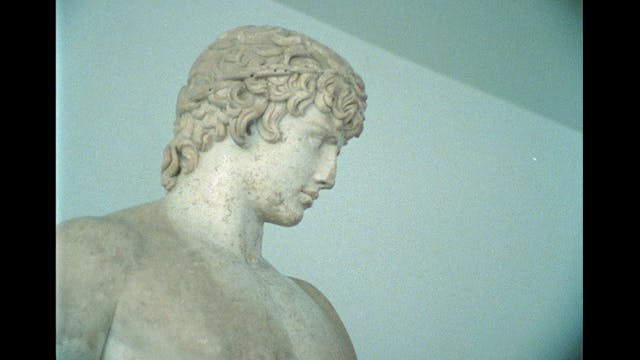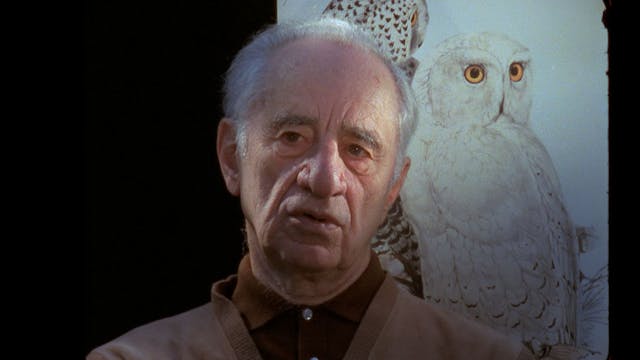Episode 2. Olympics—or Imaginary Greece
The Owl's Legacy (complete series)
•
26m
We begin with the personal. In interviews, classicists Manuela Smith and Oswyn Murray, singer Angélique Ionatos, and filmmaker Theo Angeolopoulos discuss the sometimes unconscious ways ancient Greek thought have permeated their lives and work. (And Ionatos notes that those who fetishize ancient Greece either idealize or ignore contemporary Greeks.)
From there, the episode looks at this phenomenon writ large—exploring the exploitation of ancient Greece to promote current ideology. As early as the 2ndcentury CE, the Church began recasting ancient Greeks as proto-Christians. But it was the German re-imagination that had the deepest—and most destructive—impact. The Nazis saw themselves as heirs to the Greeks. Against the backdrop of chilling footage from Leni Riefenstahl’s Olympia, this episode shows how philosophy, neo-Paganism and Greek aesthetic ideals were used to promote Nazi visions of purity, culminating in the displays of the 1936 Berlin Olympic Games.
Up Next in The Owl's Legacy (complete series)
-
Episode 3. Democracy—or the City of D...
An in-depth—but not overly dense—exploration of how Athenian democracy worked, and the key ways it differs from modern states using the word. Ancient Greek democracy emphasized the polisnot as a city-state the way we understand it, but as a collection of individuals. Those able to participate (fr...
-
Episode 4. Nostalgia—or the Impossibl...
Nostalgia is there right at the start of the Greek literary tradition. Odysseus, after a decade of fighting the Trojan War, must wander another decade before finally returning home to Ithaca. For millennia to follow, nostalgia—a word drawn from roots meaning “longing for home” and “pain”--continu...
-
Episode 5. Amnesia—or History on the ...
Western history is said to begin with the Greeks—more specifically, with Herodotus, credited as the first historian. But the ancient Greek conception of history, based on the idea of self-examination, is very different from current conceptions. History in some ways is the interplay between rememb...


